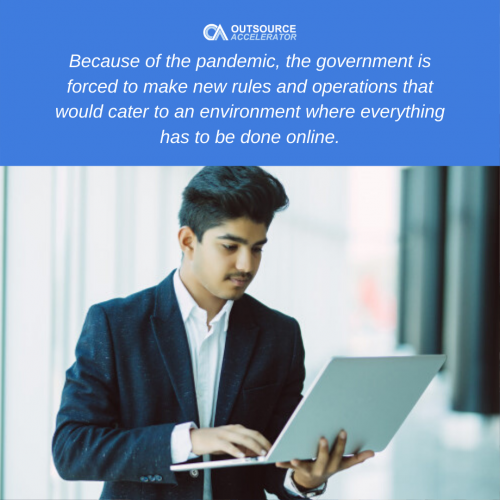Atty. March of Duran & Duran-Schulze – Incorporation and compliance in the Philippines

About Duran & Duran-Schulze
Derek Gallimore talks with Marie Christine Duran-Schulze, J.D. of Duran & Duran-Schulze Law Firm. They help businesses get through incorporating in the Philippines through dealing with legal compliance in the country.
In this episode, Atty. March talks about compliance in the Philippines. She shares insights on the basics of incorporation, how the pandemic has affected the ease of doing business, and the future of the real estate and outsourcing in the country.
Duran and Duran-Schulze is a law firm specializing in helping business process outsourcing (BPO) companies incorporate their businesses in the country. Atty. March Duran-Schulze provides a clear picture of what it’s like for expats and foreign investors to start a company in the Philippines.
The growing pains of incorporating a business in the Philippines
Atty. March’s first piece of advice to potential clients is to consider having a business here as a baby. She said that once you’ve established that “baby” here, you have to go through some growing pains. Now, what are those growing pains?
- The six different government agencies. Establishing a business in the country means going through at least six different government agencies, the Securities and Exchange Commission (SEC), Mayor’s office for the business permit, Bureau of Internal Revenue (“BIR,” equivalent to IRS), and three government-mandated agencies that provide benefits to employees (Social Security, Health Insurance, and Philippine Development Mutual Fund.
- Once established, you need to file a general information sheet for the SEC, and you need to pay taxes to the BIR monthly.
- Taxes in the Philippines, unlike in other countries, have monthly, quarterly, and annual filings. You need to have at least a bookkeeper or a lawyer to help you ensure that your report or requirements are submitted on time.
However, Atty. March said that once you have a trusted person that will work on your repertorial requirements, it’s “not really that bad.” She said that the pandemic has also become a blessing in disguise, as the government is forced to make new rules and operations that would cater to an environment where everything has to be done online.

A business’ standard setup
According to Atty. March, prior to the amendment of the Corporation Code, five directed persons are needed to establish a business. If you have five directors, three of them must be residents in the country, and two can be non-residents or foreigners. This can be “really rattling” for a foreigner.
However, with the amendment of the Corporation Code, businesses can now have one director or a sole director. With this, foreign investors “don’t have to worry about other people being owners of your corporation and you have sole control and direction on how you want your business to move forward.” The business will also be under your name.
The force majeure clause
There were talks of force majeure, or an act of God, during the pandemic, and businesses can potentially use this clause to renegotiate or invalidate contracts. According to Atty. March, these clauses really depend on the contract of parties. She said, “The force majeure can be worded in such a way that this type of pandemic can be covered. But there are also force majeure clauses that would state only acts of God like volcano eruptions, earthquakes, typhoons, tsunami, etc.”
However, she said that partnerships and BPOs can use the clause for leasing or employee termination. “While it’s arguable that you can use it, there are other provisions in the contract that protects the BPO provider. For example, you’d want to, if they are smart in their contract, they should have stated [in the contract that] for whatever reason, if an employee that they’re leasing is terminated, they still have to pay for the employees’ benefit like separation pay, or other benefits it needs to be paid.
You may be able to get away with forfeiture or your advanced payments being returned, but I would say that you will not be 100% off the hook. Because at some point, if your contract is awarded, there will be some monetary cost or penalty if you try to pre-terminate the contract.”
If you need to get in touch with Atty. March, feel free to send her an email at [email protected]
References:
Websites:
Email addresses:








 Independent
Independent




